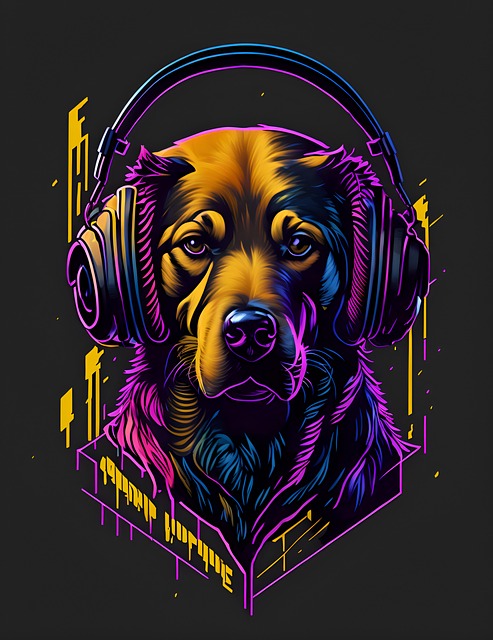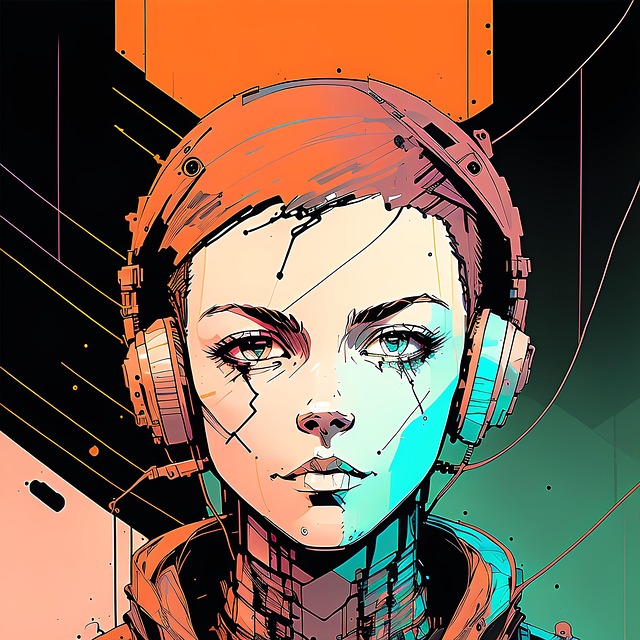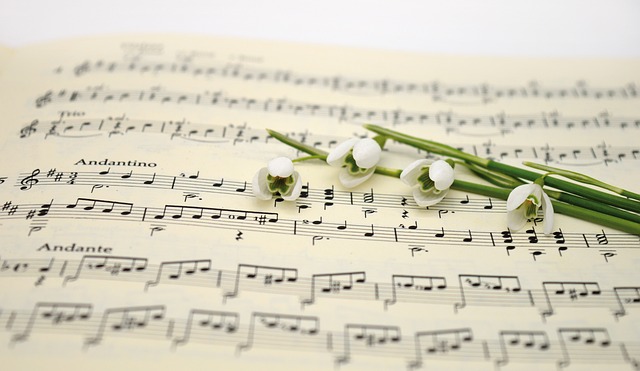Artificial Intelligence (AI) is reshaping music production, empowering ai musicians with innovative tools that streamline creative processes, from initial composition to final mastering. AI algorithms generate melodies, harmonize chords, and even mimic diverse musical styles, enabling artists to explore new sounds and directions. These technologies automate repetitive tasks, enhance sound design, and offer professional-grade results, making music creation more accessible for independent ai musicians. The future holds potential for AI to predict listener preferences, personalize recommendations, and further revolutionize the industry.
“Welcome to the future of music creation! This blog is your ultimate guide to harnessing the power of AI music tools, designed specifically for musicians and producers. From composition to production, artificial intelligence is revolutionizing the industry. Discover how these game-changing tools enhance creativity, streamline workflows, and open new avenues for musical expression. Whether you’re a seasoned pro or an aspiring artist, explore the practical applications of AI in music making and prepare to be inspired.”
- The Rise of AI Music Tools: A Game-Changer for Musicians
- Enhancing Creativity: How AI Assists in Music Composition and Production
- Practical Applications: AI Tools for Everyday Music Making
- The Future of Music: Exploring the Potential Impact on the Music Industry
The Rise of AI Music Tools: A Game-Changer for Musicians

The world of music production has seen a remarkable evolution with the advent of Artificial Intelligence (AI) tools, marking a significant shift in how musicians create and compose their art. AI music tools have emerged as game-changers, offering a new era of creativity and efficiency for ai musicians. These advanced technologies enable composers and producers to explore uncharted musical territories, from generating unique melodies and harmonies to enhancing sound design and mixing processes.
AI algorithms now power various applications, such as music generation, composition assistants, and intelligent audio editing software. With these tools, ai musicians can quickly transform ideas into fully-fleshed compositions, save time on repetitive tasks, and even discover new creative directions. The ability of AI to learn from vast musical datasets allows it to mimic different styles, making collaboration with these tools an exciting prospect for artists looking to expand their sound.
Enhancing Creativity: How AI Assists in Music Composition and Production

AI is transforming the creative process for ai musicians, offering a wealth of opportunities to enhance music composition and production. These intelligent tools can generate melodies, harmonize chords, suggest lyrical themes, and even mimic the styles of renowned artists, all of which inspire and expedite the musical crafting process. By leveraging AI’s capabilities, musicians can explore uncharted sonic territories, experiment with diverse genres, and push creative boundaries.
Furthermore, AI music production software streamlines tasks like mixing, mastering, and sound design, allowing ai musicians to focus more on their artistic vision. These tools automate repetitive tasks, offer real-time feedback, and provide access to an extensive library of high-quality samples and presets. This not only accelerates the production process but also ensures professional-grade outcomes, leveling the playing field for independent artists and small studios.
Practical Applications: AI Tools for Everyday Music Making

AI tools have revolutionized music creation, making it more accessible and efficient for ai musicians. These technologies offer a wide range of practical applications that cater to various stages of music production. For instance, AI-powered music generation algorithms can create unique melodies, harmonies, and rhythms, serving as a creative spark or even generating entire compositions. This is particularly beneficial for composers and producers who seek inspiration or want to explore new sonic territories.
Additionally, AI tools excel in music analysis, providing insights into chord progressions, key signatures, and song structures. They can also assist in mixing and mastering by automating tasks such as adjusting volume levels, equalization, and applying effects, ensuring a polished final product. Moreover, natural language processing (NLP) enables musicians to communicate their artistic vision through text, translating concepts into specific audio elements, thus streamlining the collaboration process between ai musicians and human creators.
The Future of Music: Exploring the Potential Impact on the Music Industry

The future of music is being reshaped by Artificial Intelligence (AI) tools, offering a new era of creativity and innovation for both ai musicians and the industry as a whole. AI technology has the potential to democratize music production by providing accessible resources for composers, producers, and artists, leveling the playing field and fostering a more inclusive creative environment. With AI-powered music tools, aspiring ai musicians can experiment with complex compositions, explore unique soundscapes, and create music that was once only achievable through extensive training or expensive studios.
As AI continues to evolve, its impact on the music industry could be transformative. These tools can assist in various aspects of music creation, from composition and arrangement to mixing and mastering, potentially reducing the time and resources required for production. Moreover, AI algorithms can analyze vast musical datasets to identify trends, predict listener preferences, and personalize music recommendations, opening up new avenues for ai musicians to connect with their audience. This shift towards data-driven music creation may lead to more tailored and engaging experiences for music consumers.
In conclusion, AI music tools are transforming the landscape for ai musicians, revolutionizing creativity and production processes. From composition assistance to everyday music-making tasks, these tools offer immense potential. As we explore the future of music, it’s clear that AI will continue to play a pivotal role in shaping the industry, opening up new avenues for artistic expression and collaboration. Embracing these innovations can help ai musicians stay ahead of the curve and unlock their full creative potential.
